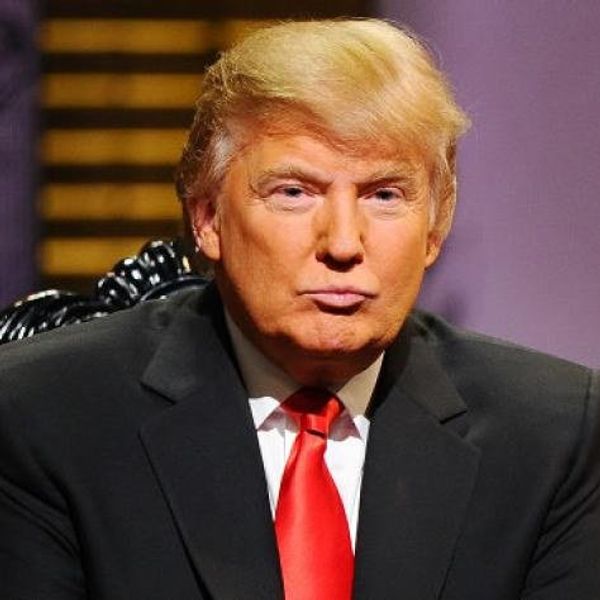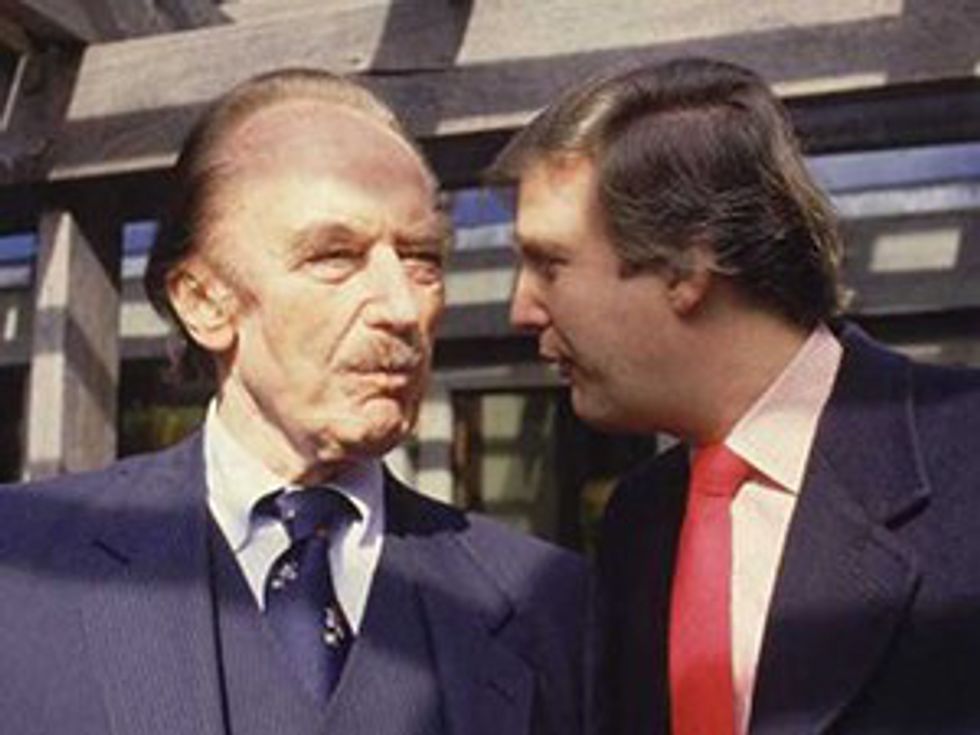Last month PBS aired a Frontline documentary called "The Choice," which compared the histories and motivations behind both presidential candidates. Hillary's rise is by no means traditional, as the probable first female president, but she has always been a politician, so in many ways, her motivations are clearer. Trump, on the other hand, is an anomaly in almost every conceivable way. He has no political experience, is a businessman of questionable success, and his greatest claim to fame is as a reality TV star. However, the documentary points to several men as being the greatest influencers of Trump, and these men instilled the values that shaped Trump into the man he is today, as the Republican nominee for president.
First there was his father, real estate developer Fred Trump. He gave his children a comfortable life in their house in Queens, but according to the documentary he was not an especially warm or nurturing father. He taught them that there were only winners and losers in life, and referred to winners as "killers." This sense of constant competition was drilled into Donald Trump at a young age, and it's obvious, particularly in his inability to acknowledge that possibility he could lose the election.
In addition to being an ambitious real estate developer, Fred Trump was arrested in 1927 for participating in a Ku Klux Klan riot in the Bronx. This has been repeatedly denied by Donald, despite his father's name and address being listed in the reporting New York Times article.
At age 13, Donald Trump was sent to an all boys military school by his father. There was not one man at this school that influenced Trump, but the effect on him is obvious. His fellow classmates in the documentary discuss the importance of Playboy magazine to students at the school. They claim it's how they "learned about women," and they refer to the "barracks talk" that was common among the boys, which is remarkably similar to Trump's recent excuse of "locker room talk." However, his classmates say that Trump hasn't changed since those days, and one commented that he left the school with "a very Hugh Hefner, Playboy view of success." This was quickly obvious as Trump entered the real estate world, as he blurred the line between celebrity and businessman.
Then there was Trump's brother, Fred Jr., who died in 1981 after battling alcoholism and falling from their father's grace. Fred Jr. was the oldest son, and at the beginning, the Trump's heir apparent, but he was miserable at attempting to run his father's business. After Fred Jr.'s death, Donald Trump commented that it was a great loss, but that his brother was not a "killer."
Perhaps the most formative man in Donald Trump's life besides his father was their lawyer Roy Cohn. Cohn took the lesson of Donald's father and multiplied them. He was a notorious figure by the time Donald met him after relishing his time working with Senator Joseph McCarthy, and "delighted in the fact that he had ruined so many lives," according to writer Marie Brenner in the Frontline documentary. He taught Donald Trump to never back down, and made him a confrontational man. In 1973, Cohn defended the Trumps after they were accused of discriminating against black renters. Cohn told Trump to "never settle," and after suing their accusers for $100 million and then settling, Trump never had to admit wrongdoing, and therefore, in his eyes, was never wrong. The documentary even suggests that the Trump initiated birther movement was in large part inspired by Cohn's McCarthyism, as a way to "sensationalize someone's history in a brutal way," according to Timothy O'Brien.
These men shaped Donald Trump, and they explain, at partially, why Trump exists as he is. His father was a KKK sympathizer at the very least, and drilled into him that winning was the only option. His military school taught him to view and treat women as objects, and his experience there foreshadowed his later statements on "locker room talk," as well as the accusations that are rising against him. He views the death of his brother as evidence on how to lose at life, while his hero is an orchestrater of the Red Scare and the Eisenhower initiative to ban gay people from working in the federal government. People have a lot of opinions on Donald Trump, but the men who have surrounded him and taught him are facts, and their past influences are obvious in the way Trump now treats minorities, in the way he treats women, and in the way he presents himself to the public.
If you want to watch the PBS documentary, you can find it here. It also offers a detailed account of Hillary's life and influences and would benefit everyone to watch before they vote.























